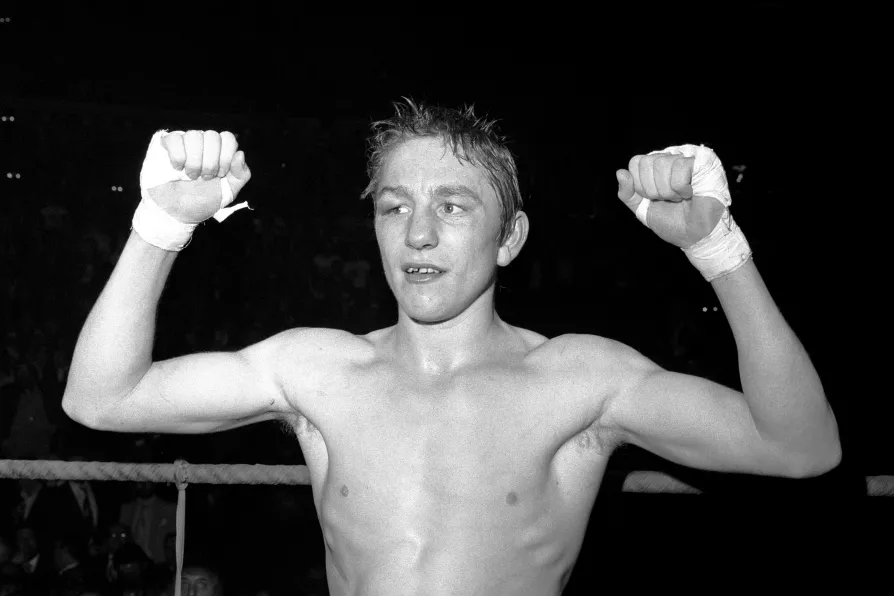
 Dave "Boy' Green victorious at tonight's Lightweight fight for the European championship with Jean-Baptiste Piedvache (France) who retired in the ninth of their 15 round fight at London's Royal Albert Hall, December 7, 1976
Dave "Boy' Green victorious at tonight's Lightweight fight for the European championship with Jean-Baptiste Piedvache (France) who retired in the ninth of their 15 round fight at London's Royal Albert Hall, December 7, 1976
THE history of British sport is strewn with iconic figures who exemplify periods when everything seemed to make sense. One decade in particular, the 1970s, falls into the category of a “case in point.”
George Best, Stan Bowles, Billy Bremner, Kevin Keegan, Sammy Nelson — the list goes on and on — all plied their footballing craft in the 1970s. In athletics Mary Peters, David Hemery and David Wilkie were in their primes. While when it comes to rugby union, among the greats were Barry John, JPR Williams, Gareth Edwards and Andy Irvine, among so many others.
No British boxer, turning to the primary object of this column, reminds us of that decade and era more than Dave Boy Green. The name alone is redolent of a time when the British working class was the strongest and most organised it had been since the second world war. The result was an economy which served the interests of society rather than the other way round, as is the case now.

JOHN WIGHT previews the much-anticipated bout between Benn and Eubank Jnr where — unlike the fights between their fathers — spectacle has reigned over substance













